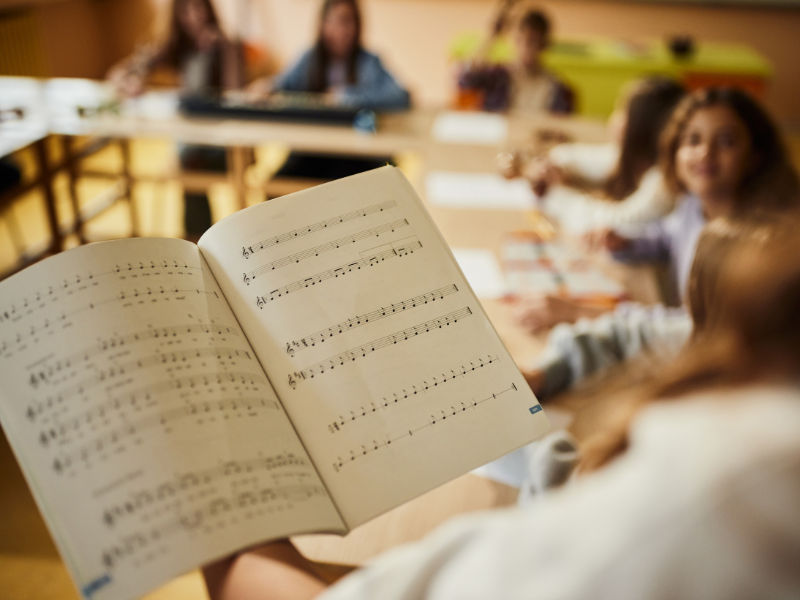Why studying music and the brain is so fascinating, and so difficult

Music is food for the brain and, consequently, the food of neuroscience. Studying how the brain processes music and how music changes the brain has fascinated neuroscientists for almost 30 years. But these two types of studies, how the brain processes music and how music changes the brain, are also very difficult.
“The problem is that there are often external factors that are difficult to control that could affect the results of these studies — including the background, age and musical experience of the participants themselves.” These factors can also change our brains. Actually, every experience we have has the capacity to change our brains, so trying to nail down all the external factors so that you can say, for sure, that music impacted the brain in the way you think is extremely difficult.
One of the interesting studies highlighted in this article looks at “uncertainty and surprise” in music. These are the moments when we think we know what is coming in the music and then the writer or composer hits us with something unexpected or unusual. Our brain can both dislike that we didn’t get what we were expecting and enjoy that we didn’t get what we were expecting. It turns out our choice of reaction can be heavily influenced by all those external factors like background and age.
So instead of a typical human reaction, we start to see the multitude of human reactions to the same stimulus. Music feeds our understanding of the world inside our heads.
This article empowers parents to advocate for music learning in schools by highlighting both its joyful impact and its proven cognitive benefits. It offers key research-backed talking points to help make the case for music as essential to every child’s education and every school’s success.
A ski instructor once said, “Musicians always learn to ski easily.” That idea intrigued me. Research shows music training sharpens spatial awareness, rhythm, problem-solving, and sensory integration, the very skills that might make skiing (and maybe other sports) come more naturally.
Singing in schools supports language learning, strengthens social bonds, and helps newcomers adapt, and with our science-based music education resources, music teaching materials, and neuromusical learning tools, teachers can unlock the cognitive benefits of music learning.
This blog shines a spotlight on the inspiring stories featured in our latest Fireworks magazine, celebrating the powerful impact of music teachers around the world.
As a music teacher, how often have we heard the phrase, “I have to skip rehearsal, I have a test”? In my school, as in many schools, we have our only rehearsal time in the morning prior to school starting, and I hear this comment regularly through the school year.
This blog explores the quiet power of Stealth Advocacy, subtle, repeated messages that shape how others see music education. From hallway posters to one-liners in newsletters, these small signals work in the background, shifting mindsets over time. If you’re too busy to launch a campaign, this is the kind of advocacy that speaks for you, even when you’re not in the room.
This blog invites music educators to slow down just enough to notice and name the everyday moments that show the power of music learning. From quick chats with parents to check-ins with students or school leaders, these small interactions are golden opportunities to advocate for music education.
In our drive to advocate for music education, it’s easy to focus on public performances, programs, or policies. But real advocacy often begins in quiet moments with students, their stories, and their shifting motivations. This blog explores how listening, noticing, and building trust can turn everyday teaching into powerful, student-centered advocacy.
What if music advocacy wasn’t an event, but a habit?
In the bustle of rehearsals, lessons, and emails, advocacy often gets pushed to the margins. But what if we made it part of our everyday teaching language? This post shares four simple ways to weave music advocacy into daily practice, from quick phrases and bold visuals to shared reflections with colleagues. Small actions, repeated often, can shift how music learning is seen and valued.
Making music together does more than build skills—it builds friendships.
Research shows ensemble experiences activate empathy and connection, helping students feel they belong. From choirs to community bands, music is where friendships grow.
Founder of Bigger Better Brains, Dr Anita Collins, receives hundreds of emails from students around the world asking questions about neuromusical research. So she decided to record a short video about the most asked questions she has received.
We often assume background music helps students concentrate—but new research suggests it’s not one-size-fits-all, especially for learners with ADHD. This study explores how different sounds—classical, preferred music, binaural beats, and medication—affect focus. The takeaway? Familiar, enjoyable music may support attention better than trendy brain hacks. What could this mean for your classroom or studio?
What if music could help neurodivergent students focus, listen, and communicate more easily? Music learning strengthens how the brain processes sound, supports attention and memory, and helps students filter speech in noisy settings. For learners with ADHD, autism, or sensory challenges, it offers a structured, motivating way to build essential skills.
A 2020 study from Brazil found that kids aged 8–12 who joined twice-weekly group music sessions outperformed their peers in reading, writing, and math. They also showed better attention and memory. Led by Projeto Guri, the program proves what many music educators feel: consistent, inclusive music-making fuels broader learning.
Some students don’t light up when the music soars—and it’s not about effort or attitude. Neuroscience is uncovering how individual brain wiring can shape emotional responses to music, including a rare condition called specific musical anhedonia. As educators, this challenges us to broaden our lens: what if joy in music doesn’t look the same for everyone?



















